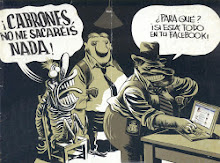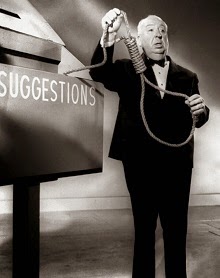Jeff Noon
Victims long dead exact their revenge in novels from Ian Rankin, Francesca Kay, Lynda La Plante and Helen Dunmore
It’s often the case that present-day crimes have their roots in the past. Ian Rankin’s Even Dogs in the Wild (Orion, £19.99, Spectator Bookshop, £16.99) uncovers abuse and ill-treatment in a care home in the 1980s, and the murder of a teenage boy. That terrible act echoes through the years. When three people receive threatening notes, and two of them end up being murdered, the Edinburgh police fear that more will become victims. Enter John Rebus in his 20th outing. Retired now, but as canny as ever, he picks at the connections between the present and the past with a sure, unblinking eye. The search for justice gives him life.
Rankin puts his books together in a methodical way; line by line, idea by idea, the story builds up and takes you over. His style — bone dry, observational, even distant at times, but glinting with poetry — proves hypnotic. He writes complex plots, weaving between viewpoints, and always with a soundtrack in mind, in this case a song by the Scottish band The Associates. We learn that even when the victims are dead, their spirits can live on; they can still reach out to exact their revenge.
In 1981, London was caught up in the final decade of the Cold War. Francesca Kay’s The Long Room (Faber, £14.99, Spectator Bookshop, £12.49) is a spy story. We know the atmosphere from John le Carré; ex-public schoolboys in dusty grey offices going about their clandestine business. Stephen Donaldson is far down the chain of command. His sole job is to listen to the recorded lives of suspected traitors and enemy agents. He’s been trained to detect the secrets held within normal speech, looking for clues, slip-ups, subtextual messages. One subject in particular holds his interest: not the possible double agent given the codename Phoenix, but his wife, Helen. Stephen falls madly in love. He becomes obsessed with her, a woman he has never seen, only heard. From her words alone he creates the perfect woman in his mind. He steals tapes to listen to at home, finds out where she lives, follows her.
At the same time, he’s being studied himself as a possible suspect. As Juvenal almost said: Who listens to the listening men? It’s a great idea, even if Kay’s fine literary qualities do get in the way of tension and suspense. This is the spy who loved me from afar: unknown, unseen, untouched.
We move further back in time with Lynda La Plante’s Tennison (Simon & Schuster, £20, Spectator Bookshop, £17). In 1973, WPC Jane Tennison has just started her first posting with the Metropolitan Police in Hackney. She is the well-known detective from television’sPrime Suspect series. She is far from that authoritative figure here: young, inexperienced, naive in life and love. The plotting is simple, a murder mystery solved far too quickly, and a bank robbery; the real interest lies in the period setting, the detailed procedural work, the everyday sexism that the young Tennison fights against, and her first romance. Female camaraderie does battle with male banter, all keenly observed. I’m not sure how much interest the book would hold without Helen Mirren’s face and character in the reader’s mind, but as the final pages unfold a new compassion dawns. The story is really about the incident that created the future Tennison: aloof, fiercely independent, ferocious when pushed. This is the moment when young hope dies. DI Tennison was born in tragedy, her mask forged in defiance of the feelings that threaten to overwhelm her. Now we understand.
The spy wears his mask with pride, I imagine, at least at the start of his career. Later on, it eats at the soul. Helen Dunmore’s Exposure (Hutchinson, £16.99, Spectator Bookshop, £13.99) is set in 1960, and begins when Giles Holloway steals a top-secret file in order to help the communist cause. Giles is a double agent, and a homosexual, two great passions that must be kept hidden. In danger of being uncovered, he names his colleague Simon Callington as the traitor. Simon’s life falls apart; he’s arrested, his wife and children have to go into hiding, the press are moving in. He’s an innocent man. But even the most innocent of us carry secrets. The danger with ‘literary thrillers’ is simple: the more literary a story is, the less thrilling it can be. There’s a balance to be found, and Dunmore expertly weighs both sides. She revels in layers of concealment. Beautiful poetic phrases, quite startling at times, enliven the eye and the mind. She can also be brutal when needed, and it’s a woman who finally takes control. We live daily with the actions we made in the past: as individuals, as a nation. Often we wish such incidents would remain dead and buried. Reading crime novels teaches us to be wary: the grave can never be deep enough.























.jpeg)










0 comentaris:
Publica un comentari a l'entrada